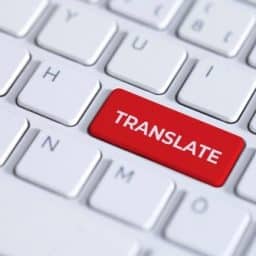
Our client from the automotive industry has been a leader in the changes within the automotive sector for more than a 100 years. In this era of electrification, their focus is on building a better world, enabling everyone to fulfil their dreams through the freedom of movement. The company’s primary mission is the complete electrification of the cars produced, achieving climate neutrality through zero emissions and carbon neutrality, sustainable development and creating the best experiences related to driving, car ownership and within the communities in which it operates.
The client commissioned us to translate internal company documentation from Polish to English. We received 28 files in various formats, such as PDF, Excel, Word, as well as email correspondence, totalling approximately 49,000 words. The files were placed in folders with a strictly defined structure, which had to be maintained when returning the assignment. Some of these were a priority for the client, which is why they were prepared and translated first, letting client have them as quickly as possible. The rest of the files were prepared within the agreed period of 16 business days.
The PDF files were first subjected to a graphic conversion so that they could be translated using translation tools, thanks to which the creation of a client’s translation memory was possible, ensuring cost reductions for subsequent orders. Excel files and Word files do not require additional processing, as they import into translation tools without any issues, and thus, they were immediately sent for translation. The greatest challenge involved the email correspondence – how should we handle files in the Outlook program format, so that the content is readable and fully reflects the source? Fortunately, despite the issue appearing complicated, in reality, it did not present too many difficulties – the emails were also successfully imported into the translation tools without any problems, maintaining them in their original form after translation.
Finally, as part of internal quality control, the completeness of the finished translation was thoroughly verified, and the files were placed in folders according to the corresponding structure. The prepared order was then encrypted and sent back to the client within the agreed deadline.
If you need to translate files in non-standard formats, there is no need to convert them to standard editable versions on your own – we can handle the translation of files in any format, so feel free to contact us – together we can find a convenient linguistic solution… and not only linguistic!















